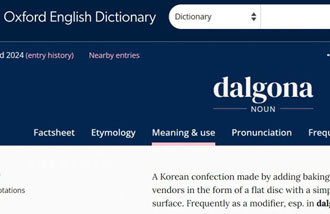Shedding new light on Rhee Syngmans farmland reform
Shedding new light on Rhee Syngmans farmland reform
Posted March. 30, 2015 07:27,
Starting the Korean War on June 25, 1950 by invading the South, Kim Il Sung was convinced of unification under communism in the Korean Peninsula. He thought that the North had the upper hand in military power and believed that South Korean farmers would rise in arms to be on his side if the North pushes its way down to the 38th parallel. When the war broke out, however, majority of South Koreans turned their back to Kim Il Sung, which came as a surprise since the leftist had a wider foothold in the South immediately after gaining independence in 1945.
Rhee Syngman, the first president of South Korea, completed a farmland reform by proclaiming the enforcement ordinance of the Farmland Reform Act and its enforcement regulation respectively in March and April, 1950. This transformed some 1.67 million tenant farmers into farm owners. Having been finished merely two months before the Korean War broke out, the reform inspired the spirit of ownership to farmers, absolute majority of the population, which played a critical role in strengthening the sense of unity in the system of the Republic of Korea.
Some argue that Kims the so-called agricultural reform, confiscation and re-distribution without compensation, was more successful and progressive than Rhee`s confiscation and re-distribution with compensation. This argument, however, goes against the historical facts. Although the reform of the South partially restricted landowners private ownership of property, it basically respected the freedom and market principles, which allowed South Korean farmers to exercise their ownership over newly-granted property. The agricultural reform prevented the Korean Peninsula from being unified under communism and laid the foundation for industrialization during the Park Chung-hee administration. On the other hand, the North imposed up to 40 percent of tax in kind after the reform and, soon after, took away all the land to vest it in the state. In North Korea, tenant farmers of land owners were merely transformed to tenant farmers of the state.
This coming April marks the 65th anniversary of the completion of Rhee Syngmans farmland reform. In addition, the year of 2015 is the 140th year of his birth and 50th year of his passing away. True that Rhee Syngman made some mistakes but, witnessing the serious social conflict caused by land oligopoly by selected few land owners in South America, the Philippines and India, we cannot help but highly recognize the historical implication of his agricultural reform. In the confusion of newly-independent country, Woonam Rhee Syngman, joining hands with leaders such as Haegong Shin Ik-hui and Inchon Kim Seong-su and standing against communism, established democratic Republic of Korea. Rhee`s contribution to founding and protecting the country should be highly recognized as well.
shkwon@donga.com
Headline News
- Pyongyang test-fires new hypersonic IRBM with longest flight range
- NVIDIA CEO: ‘ChatGPT moment for general robotics just around the corner’
- President security service chief refuses second summons
- NVIDIA CEO: ‘ChatGPT moment for general robotics just around the corner’
- N. Korea fires intermediate-range ballistic missile







